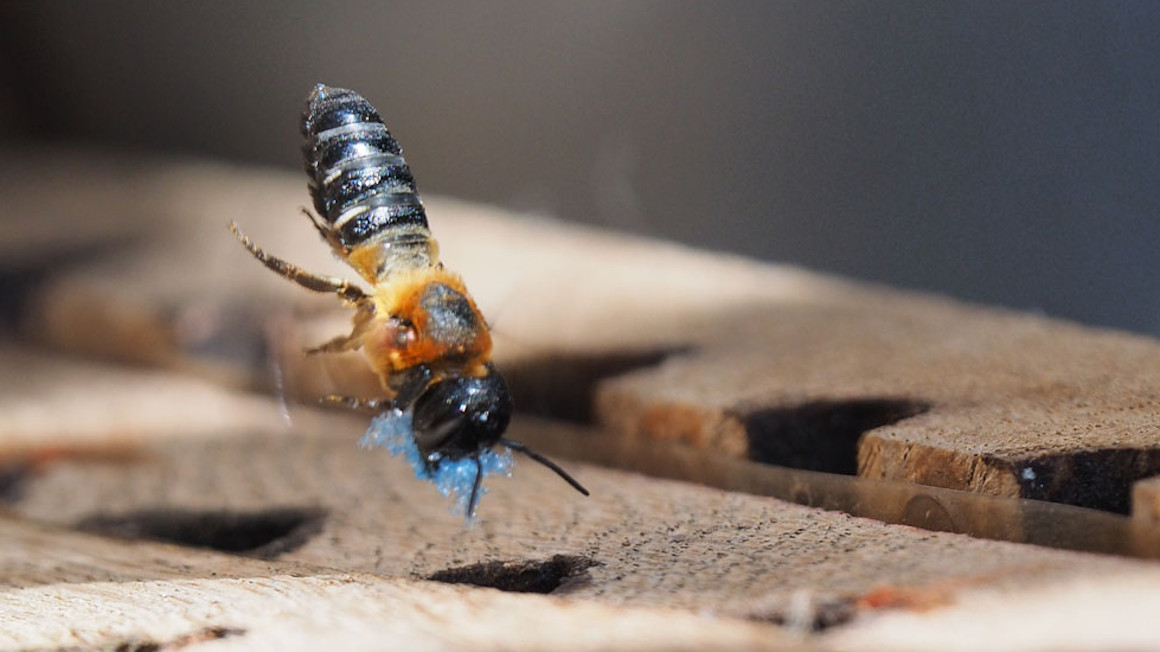Pollinators suffer from plastic pollution
Deposits of plastic particles in the soil can endanger the behaviour of bees and thus the function of agricultural landscapes and global food security. This is shown by an international study involving German researchers.

Plastics are not only polluting the water and land. The tiny nano- and microplastic particles (NMP) are also increasingly becoming a threat to ecosystems. The negative consequences of microplastics for marine ecosystems and individual sea creatures have already been documented by numerous studies. However, the consequences of pollution on agricultural ecosystems have been investigated very little. An international research team involving the University of Freiburg, the University of Tübingen and Chinese researchers is now providing data on this for the first time.
Consequences of plastic pollution for insects and agriculture
As part of a so-called review study, the research team summarised a total of 21 previously published individual studies. The researchers focussed on how pollinator insects and other beneficial insects come into contact with nano- and microplastic particles and what consequences plastic ingestion has for insects as well as for the ecosystems and agricultural production that depend on them.
As the team reports in the scientific journal "Nature Communications", they were able to identify various sources that contribute to plastic pollution. These include plastic films, fertilisers, polluted water, but also atmospheric deposition - i.e. particles that are spread through the air.
Pollinator performance of bees and yield endangered
The problem: the plastic particles accumulate in the soil and are then ingested by pollinators and beneficial insects, which are important helpers in pest control, via the air and food or even used in nest building. According to the researchers, the ingestion of NMPs can lead to digestive problems and behavioural changes in bees and weaken the immune system. This would make the bees more susceptible to diseases, for example, and possibly less effective at pollinating plants, the researchers write.
‘We find microplastics in the gut of bees and see how wild bees use plastic to build nests. We therefore urgently need to investigate how this interacts with other stressors, such as climate change, for bees and their pollination services,’ says Alexandra-Maria Klein, co-author of the study and Professor of Nature Conservation and Landscape Ecology at the University of Freiburg.
If the natural pollinators fall ill or even fail completely, this would have fatal consequences for agricultural production. ‘A decline in pollination performance has a detrimental effect on crop yields. Plastic pollution could thus further exacerbate existing uncertainties in the global food supply,’ the researchers warn.
Hotspots for interaction between plastic particles and viruses identified
But that's not all: according to the study, pollution from nano- and microplastic particles can intensify the negative effects of other environmental stressors such as pesticides, chemical pollution, fungi and pathogens. The researchers were able to identify ‘hotspots’ where there was an interaction between plastic particles and harmful viruses. Such interactions could ‘lead to particularly serious effects of NMP on pollinators and thus on the stability of the food system’, the researchers write.
The study is the first to systematically show how plastic pollution affects bees and what consequences this has for agriculture. However, further research is urgently needed, as the data available on some pollinators and beneficial insects such as bumblebees and ladybirds was sometimes inadequate and it was therefore not possible to differentiate between the effects of different NMP sizes and quantities. For Freiburg researcher Alexandra-Maria Klein, however, one thing is certain: ‘Plastic pollution must urgently be controlled politically.'
bb


